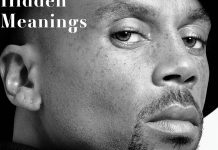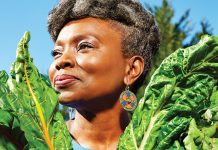David Bottoms, who turned sixty-two on September 11, has been Georgia’s poet laureate since 2000. In 2009, he was inducted into the Georgia Writers Hall of Fame, honoring a body of work that blends narrative and lyrical poetry inspired by domestic life and mystical notions. One recent afternoon, he was putting sunflowers in a vase while he talked about his latest collection of poems, We Almost Disappear.
All of your collections have a very distinctive tone. How would you characterize this one? This one is kind of an old person’s book. As you get older—you’ll know this someday—you start to think about different things. I remember seeing [James] Dickey just a few months before he died, at a party for him over at Emory, and he just looked at me. He had a big glass of chocolate milk—he had given up alcohol finally—and he said out of the blue, “David, there’s nothing more important than family.” I thought that was kind of an irony, since he had done just about everything in his life to destroy his family. And it was totally out of context.
But evidently that’s what obsessed him late in life. I get that now.
Some of the most moving poems in this book are about your father in the last years of his life. After he died [in 2009], they figured out he had leukemia. We didn’t even know that. He was in terrible pain, and all he ever took for it was Tylenol. He just ate Tylenol like candy. And he just sort of withered away. It was long and painful, and he wouldn’t go to the doctor.
His name was David Bottoms, too? Yes, I am a Junior, although I never used it. It was just too much trouble.
Your mother is still living? She is eighty-five and living in the family home in Canton. She’s very frail, but she won’t leave the house.
Now that you think about such things, how do you feel about getting older? Well, you know, you’re blessed to be able to get older. I’m very happy where I am in my life.
| >> REVIEW: Read Weaver’s criticism of Bottoms’s book |
Does aging scare you at all? No. You know, things change. The family dynamic changes. Having a daughter leave home is painful, but good, too. She’s doing nicely at Emory. I’m getting more introspective and reading more—books that I probably wouldn’t have read thirty years ago. I just finished a book by Aldous Huxley called The Perennial Philosophy. It’s a pretty dense but wonderful book about spirituality. He was a brilliant guy. I’m thinking more about things like that—about how to be content with where you are and what you have. At this point, I think “grateful” sums up my attitude best. It’s been a good ride, and I’m hoping it goes a good while longer!
What’s a perfect day for you? Getting up—don’t even care about the weather that much—and having my family be safe and close. And reading something really good. I’ve fallen in love with Russian novels. I’ve been reading a lot of them over the past ten years—especially Tolstoy. I love Tolstoy. My favorite is War and Peace. If I can have enough clarity to read a good book, and maybe write down a thought or two, and have a nice dinner, that’s a great day.
Do you write every day? No, I don’t even write every week. I write when the notion hits me. I figured out very early on I couldn’t just sit down at a blank piece of paper and look at it without any notion of what might go on it. I just wait until the idea hits. And then I stop what I’m doing and try to get it down. If I get an idea and can get a couple of good lines, I’ll let it go at that.
You’re still teaching at Georgia State? I can’t afford to retire. [laughs] Anyway, I always wanted to teach at a campus with a tree on it. And I think there is a tree there somewhere.















